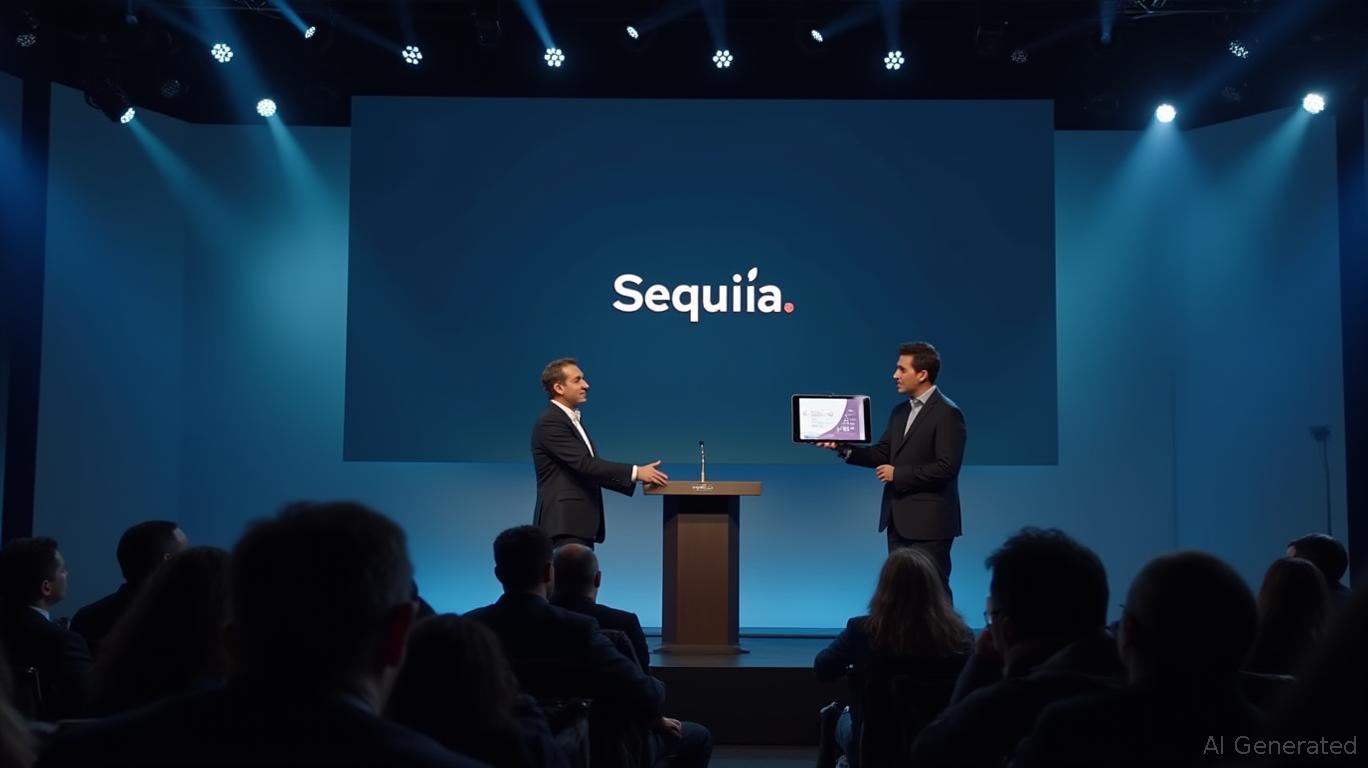Blast API Shutdown: A Turning Point for Web3 Developers
In the final days of October 2025, Bware Labs confirmed what many developers feared: Blast API, one of the most widely used RPC providers in Web3, is shutting down. The announcement, coming right before its planned acquisition by Alchemy, sent a ripple through the developer community. What seemed like a routine business move has turned
In the final days of October 2025, Bware Labs confirmed what many developers feared: Blast API, one of the most widely used RPC providers in Web3, is shutting down.
The announcement, coming right before its planned acquisition by Alchemy, sent a ripple through the developer community. What seemed like a routine business move has turned into something deeper, a sign of how fragile yet essential the backbone of Web3 really is.
Centralization by Necessity, Not by Design
The RPC (Remote Procedure Call) layer is what allows decentralized apps to “talk” to blockchains. It’s the middleware that handles billions of requests daily, wallet balances, token transfers, and contract interactions.
Yet despite the decentralized ideals of crypto, this layer has become dominated by a few major players like Alchemy, Infura, and formerly, Blast. Their tools made blockchain development faster, but at the cost of dependency.
Many developers are viewing Alchemy’s acquisition of Blast as a sign of market consolidation. It simplifies access for enterprise clients but also reduces diversity in the infrastructure layer, something decentralization advocates have long warned against.
Developers React: A Search for Resilience
With Blast API going dark, developers are being forced to rethink their infrastructure choices. Some are moving directly to Alchemy, as Bware Labs suggested. Others are taking this moment to diversify their setup, balancing between multiple RPC providers or exploring more multi-chain options.
The service, which supports over 115 blockchains, has positioned itself as a multi-chain workhorse. It provides stable pricing and no request limits for projects that need scale without unpredictability.
For developers running across ecosystems, from Ethereum and Solana to Monero and eCash, this flexibility has become critical.
Together, these shifts suggest that developers are no longer chasing the newest API, preferring to build infrastructure that can withstand uncertainty.
Developers at a Crossroads: Stability Over Speed
Although Alchemy has presented a migration path for former Blast API users, developers are being cautioned against rushing the process. Every project operates under its own architecture, scaling needs, and financial structure. What works for one team could create bottlenecks or unnecessary costs for another. A measured transition ensures stability and flexibility rather than quick fixes.
For multi-chain builders, the first consideration is scope. A project that runs solely on Ethereum may find Alchemy’s ecosystem integration appealing, but those building across networks like Solana, Avalanche, or Monero require broader coverage. Scalability also plays a major role: if request volumes surge during peak usage, rate limits or pricing tiers could quickly become constraints that slow operations or inflate expenses.
Budget and support complete the equation. Teams must decide whether predictable, flat-rate pricing models suit their needs better than usage-based options that scale with traffic. Just as importantly, the quality and speed of customer support can determine how fast a technical issue is resolved. It is an overlooked factor that can make or break uptime during product launches or token events.
How Developers Are Adapting: Finding the Right Fit
Web3’s infrastructure layer is going through the same change that cloud computing did a decade ago, moving from what’s easiest to what’s most dependable. The Blast API shutdown is a reminder that reliability in decentralized systems doesn’t come from one strong provider but from a diversified architecture.
As RPC services become more specialized, Alchemy remains primarily focused on the Ethereum ecosystem while also extending support for several other major blockchains. Meanwhile, NOWNodes is extending its reach across dozens of chains, and developers are learning to mix, match, and monitor their stack with the precision once reserved for traditional IT teams.
NowNodes provides multi-chain RPC access with a reported 99.95% uptime, supported by failover systems and global redundancy to maintain stable performance. It offers a free entry plan, flexible pricing options, and fast WebSocket connections for real-time blockchain data. Its model appeals to developers seeking predictable, cross-chain infrastructure without rate limitations.
Alchemy, co-founded by Nikil Viswanathan and Joe Lau, remains a widely used infrastructure provider in the Ethereum ecosystem. Its Supernode architecture and analytics tools are designed for speed, scalability, and data accuracy across Ethereum and Layer 2 networks and several other supported blockchains, such as Polygon and Arbitrum
| Category | NOWNodes | Alchemy |
| Network Coverage | 115+ blockchains, including Ethereum, Bitcoin, Solana, Monero, and eCash. | Primarily Ethereum and Layer 2s, but also supports several other major blockchains like Polygon, Arbitrum, and Optimism. |
| Node Types | Shared, Dedicated, and Archive (setup in 1–2 days). | Shared and Enterprise-only Dedicated. |
| Reliability | ~99.95% uptime with auto-failover and 100% blockchain uptime. | ~99.9% uptime. |
| Support | 24/7 direct access via chat, Slack, or Telegram (avg. 3-min response). | Ticket-based. |
| RPS Limits | No limits on paid plans; ~15 RPS on free tier. | Tier-based limits. |
| Pricing (Oct 2025) | From €20/month (1M requests) to €400 (unlimited). | From $49/month. |
| Best For | Multi-chain scalability and predictable costs. | Ethereum-focused teams. |
Final Verdict
The shutdown of Blast API is more than an isolated event — it’s a snapshot of a maturing industry learning from its own dependencies. In the race to decentralize everything, Web3 has discovered that true resilience comes not from any single provider but from diversity, redundancy, and balance.
As developers explore new models — from Alchemy’s ecosystem-focused depth to NOWNodes’ multi-chain reach — a clearer picture of the next phase of Web3 infrastructure is emerging: one where flexibility and interoperability matter as much as performance.
Disclaimer: The content of this article solely reflects the author's opinion and does not represent the platform in any capacity. This article is not intended to serve as a reference for making investment decisions.
You may also like
LUNA - -17.56% over the past month: Significant Decline as Downtrend Continues
- LUNA fell 17.56% in a month, part of a 1-year 81.43% decline, signaling a bearish trend. - Technical indicators show consolidation after sharp selloff, with price nearing key support levels. - Prolonged weakness raises doubts about LUNA's fundamentals and competitiveness against alternatives. - Market uncertainty persists as it remains unclear whether this is a structural shift or cyclical correction.
Bitcoin News Today: "Large Investor Moves Indicate Crypto Market's 'Intense Fear' Could Precede a Rebound"
- Crypto whales and institutional traders are accumulating $19.94M in BTC and $18.71M in ETH via leveraged longs despite market declines. - Crypto Fear & Greed Index hit record low of 21, reflecting extreme panic among retail and institutional investors since October 30. - Bitcoin faces critical $108,000 support level, with technical analysis showing potential for $104k decline or $114k rebound by mid-November. - Market dynamics show institutional optimism contrasting retail fear, with whale activity seen

Victim Compensation Does Not Excuse Criminal Acts, Judges Inform SBF
- Sam Bankman-Fried’s legal team faces uphill battle as appeals judges question claims of unfair trial and lack of fraud intent. - Judges dismiss defense arguments, noting SBF admitted not relying on legal advice during FTX fund transfers. - Court rejects post-trial repayment claims, emphasizing criminal liability persists despite 90% customer fund recovery. - Case sets precedent for crypto accountability, with appeals unlikely to succeed without procedural errors.

Sequoia's Change in Leadership: Will Advancements in AI Help Restore Broken Trust?
- Sequoia Capital's Roelof Botha steps down amid reputational crises, ceding leadership to Alfred Lin and Pat Grady during strategic recalibration. - The transition follows Islamophobic controversy, COO's exit, and a $200M FTX loss, prompting cultural and financial restructuring efforts. - New leaders prioritize trust restoration via a $950M AI fund targeting disruptive startups, signaling a return to U.S.-centric operations and ethical accountability. - The shift reflects industry-wide adaptation to geopo

